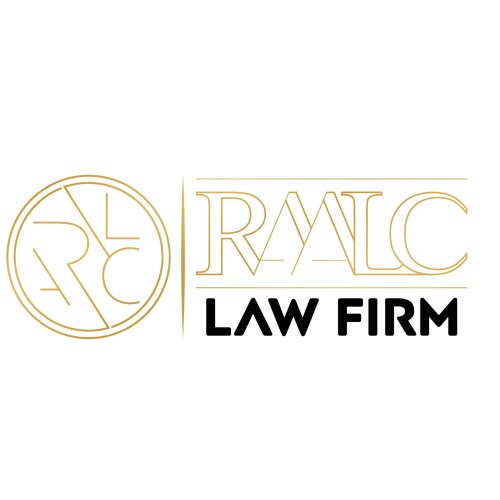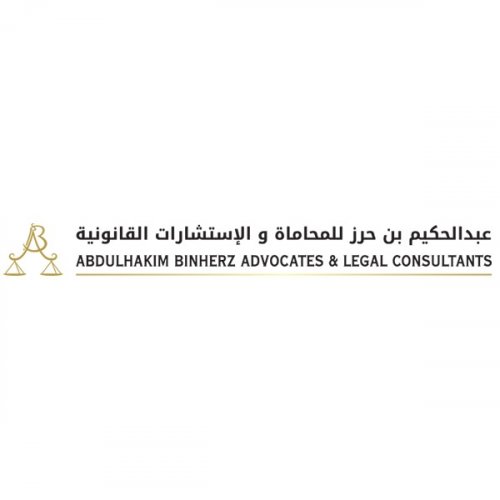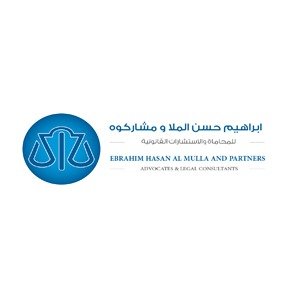Best Tax Increment Financing Lawyers in Ras al-Khaimah
Share your needs with us, get contacted by law firms.
Free. Takes 2 min.
List of the best lawyers in Ras al-Khaimah, United Arab Emirates
About Tax Increment Financing Law in Ras al-Khaimah, United Arab Emirates
Tax Increment Financing (TIF) is a financial tool used to stimulate economic development, typically in underdeveloped or distressed areas. In Ras al-Khaimah, United Arab Emirates, TIFs are particularly relevant as they are an integral part of urban development strategies. TIF works by using the future gains in taxes to finance the current improvements, which theoretically will lead to those gains. It’s an attractive option for municipalities that aim to promote growth without immediately raising taxes.
Why You May Need a Lawyer
Engaging a lawyer skilled in Tax Increment Financing can be crucial in several situations. Lawyers can provide guidance on structuring deals, ensuring compliance with local regulations, negotiating with government bodies, and understanding complex financial models associated with TIFs. Legal representation is beneficial for developers, municipalities, and potential investors who need assistance in navigating the intricate legal terrain associated with TIF projects in Ras al-Khaimah.
Local Laws Overview
In Ras al-Khaimah, the legal framework for TIF is governed by a mix of federal laws and local regulations focusing on urban development and economic growth. The primary body overseeing such initiatives is the Department of Economic Development. Key aspects include the need for project approval by local authorities, adhering to specific urban planning metrics, and compliance with environmental standards. The laws also stress transparent reporting and auditing practices for TIF-financed projects.
Frequently Asked Questions
1. What is the purpose of a TIF?
A TIF captures future tax benefits of a new development to subsidize current improvements. Its main purpose is to attract investment and revitalize areas.
2. Who oversees TIF projects in Ras al-Khaimah?
The Department of Economic Development is the primary body that oversees TIF projects, ensuring compliance and alignment with economic goals.
3. Can individuals independently apply for a TIF?
Typically, TIF applications are managed by developers or municipalities. Individuals are generally not eligible to apply independently for TIF benefits.
4. What types of projects are eligible for TIF?
Eligible projects often include public infrastructure, housing developments, retail and commercial properties, and sometimes industrial projects.
5. How does a TIF impact surrounding property values?
While TIFs can increase property values by improving local infrastructure and amenities, they can also lead to increased taxes in the long term.
6. Are there risks involved in using TIF?
Yes, risks include potential project failures, underestimated tax increments, and political or community opposition.
7. How is the increment in taxes calculated?
Incremental taxes are calculated based on the increase in property values and, consequently, property taxes post-development.
8. What happens if a TIF district does not generate the expected revenue?
If expected revenues are not generated, the project may face financial shortfalls, requiring adjustments or additional funding sources.
9. Do TIFs affect school funding in Ras al-Khaimah?
Generally, TIFs can divert funds from school districts; however, specific policies ensure educational funding is not adversely affected.
10. Is public consultation required before approving a TIF?
Yes, community involvement and public hearings are a part of the approval process to ensure that development meets local needs and concerns.
Additional Resources
Those seeking more information on Tax Increment Financing in Ras al-Khaimah can consult the following resources:
- Department of Economic Development, Ras al-Khaimah
- Ras al-Khaimah Investment Authority
- Urban Planning Council, UAE
- Local chambers of commerce and industry bodies
Next Steps
If you need legal assistance regarding Tax Increment Financing in Ras al-Khaimah, it is advisable to contact a local law firm or legal consultant specializing in financial law or real estate development. Begin by gathering all relevant documents and project details, then seek out a preliminary consultation to discuss your specific needs and legal obligations. Additionally, attending workshops or seminars on TIFs conducted by governmental bodies can provide valuable insights into the process.
Lawzana helps you find the best lawyers and law firms in Ras al-Khaimah through a curated and pre-screened list of qualified legal professionals. Our platform offers rankings and detailed profiles of attorneys and law firms, allowing you to compare based on practice areas, including Tax Increment Financing, experience, and client feedback.
Each profile includes a description of the firm's areas of practice, client reviews, team members and partners, year of establishment, spoken languages, office locations, contact information, social media presence, and any published articles or resources. Most firms on our platform speak English and are experienced in both local and international legal matters.
Get a quote from top-rated law firms in Ras al-Khaimah, United Arab Emirates — quickly, securely, and without unnecessary hassle.
Disclaimer:
The information provided on this page is for general informational purposes only and does not constitute legal advice. While we strive to ensure the accuracy and relevance of the content, legal information may change over time, and interpretations of the law can vary. You should always consult with a qualified legal professional for advice specific to your situation.
We disclaim all liability for actions taken or not taken based on the content of this page. If you believe any information is incorrect or outdated, please contact us, and we will review and update it where appropriate.











